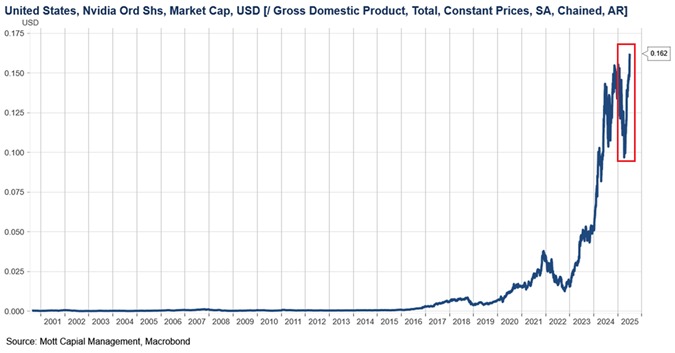$10-20mil in the year 2571 is like $0.15 today
- 0 Posts
- 333 Comments

 3·8 days ago
3·8 days agoThose additional requests will reuse the existing connection, so they’ll have more bandwidth at that point.

 86·9 days ago
86·9 days ago14kB club: “Amateurs!!!”
https://dev.to/shadowfaxrodeo/why-your-website-should-be-under-14kb-in-size-398n
a
14kBpage can load much faster than a15kBpage — maybe612msfaster — while the difference between a15kBand a16kBpage is trivial.This is because of the TCP slow start algorithm. This article will cover what that is, how it works, and why you should care.

 7·12 days ago
7·12 days agoWas this supposed to be an example, or is this just cruel irony?

 10·13 days ago
10·13 days agoThe original source was much more sensible.
The comparison makes sense for evaluating whether you’re over-invested in something. Like, if Nvidia suddenly poofed out of existence, would it seriously be worth 16% of everything the whole country makes in a year to get it back?
Owning a car that’s worth 16% of your yearly income sounds reasonable, no matter what your actual income is. A Pokemon card collection that’s 16% of your income is probably too risky, no matter what your actual income is.
Also, GDP is a decent scale to use for charting investment in a productivity tool, because if GDP ramped up at the same time as investment then it looks less like a bubble, even if they both ramp up quickly.
But that’s not what we see. We see a sudden and volatile shift, nothing like the normal pattern before the hype.

But why the Random Capitalization?
One time, I went to the store with a friend on SNAP.
Friend: “I gotta pick up some steaks to pay my neighbor for patching the roof”
Time to check out. I pay for my stuff first. Second transaction for the steaks.
Person behind us was already annoyed that we had to do two transactions.
Friend: “EBT for this one”
Person behind us: “Are you serious?!”
Me: 😳
Friend and cashier are unphased, don’t even look
Me after we leave: “Does that happen a lot?”
Friend: “All the time. Doesn’t matter what you buy though. Too expensive, too cheap, too many calories, not enough calories, too much sugar, too vegan. They find something to be mad about.”
Yeah, just comments… with chapters…

 16·17 days ago
16·17 days agoHonestly, the developer experience was shit.
They tried to leverage their decades of prior investment and use it as an advantage, but what it actually felt like was a wobbly Jenga tower where every little thing had a caveat and no clear happy path.
Contrast that with iOS, where it felt like they basically started from scratch.
I think Microsoft thought they were lowering the barrier to entry by allowing existing WinForms, ASP.NET, and Silverlight (lol) devs to reuse their stuff, but in practice it made it harder to get started. Every app felt like a legacy codebase from the jump.

 481·17 days ago
481·17 days agoHard to say, actually.
- .NET took an unexpected turn towards cross-platform FOSS
- A third major player in the smartphone market may have abated the enshittificatory forces for a bit longer
- Having a platform that’s consumer-oriented, in contrast to their mostly business-oriented offerings today, might have clued them in to consumer sentiment a little better
- Having a viable path towards profitability outside of enterprise services might have made the all-in gamble on OpenAI less appealing
- Butterfly effect etc.

 78·18 days ago
78·18 days agoJimmy Wales: Libertarian that ended up creating perhaps the most successful collectivist project of all time.
 3·21 days ago
3·21 days agoI think you gotta put more work (hehe) into defining what you mean by “work”.
Some people think of work as an inherently exploitative activity, where someone who owns the means but lacks the skill to use them loans the means to someone who has the skill, in return for some of (most of) the benefits of the labor.
I think that arrangement actually strips a lot of fulfillment from life, because the people who do the work don’t get to make decisions and the people who make decisions aren’t forced to understand the real impact of those decisions.
But if you just mean “doing something useful” or even “doing something meaningful” (since much of what gives life meaning isn’t explicitly useful), I think it would hard to disagree with you.
I think a lot of people who call themselves “anti-work” aren’t opposed to putting effort towards something meaningful — I think it’s actually because of their sense that their day job is meaningless (and maybe even undermining meaningful pursuits) that they call themselves “anti-work”.
The coffee mug. And the chair… my god, the chair.
Kingslayer85 is an okay name I guess
Tim Curry

 11·27 days ago
11·27 days ago12oz mouse
“I always wanted to play in a band”
“Oh yeah? What do you play?”
“I play, uh… with minds. Now go home. But don’t look under your bed”

 24·29 days ago
24·29 days agoURL shorteners, AMP? Micro USB?
Edit:
Thinking of things that weren’t made obsolete but just unprofitable…
Physical menus at restaurants, useful search results, human support staff, non-subscription software, open APIs, useful product reviews


“Is the stress of late-stage capitalism making you unproductive? Here are some ways to improve your efficiency without questioning the underlying logic of the system.”